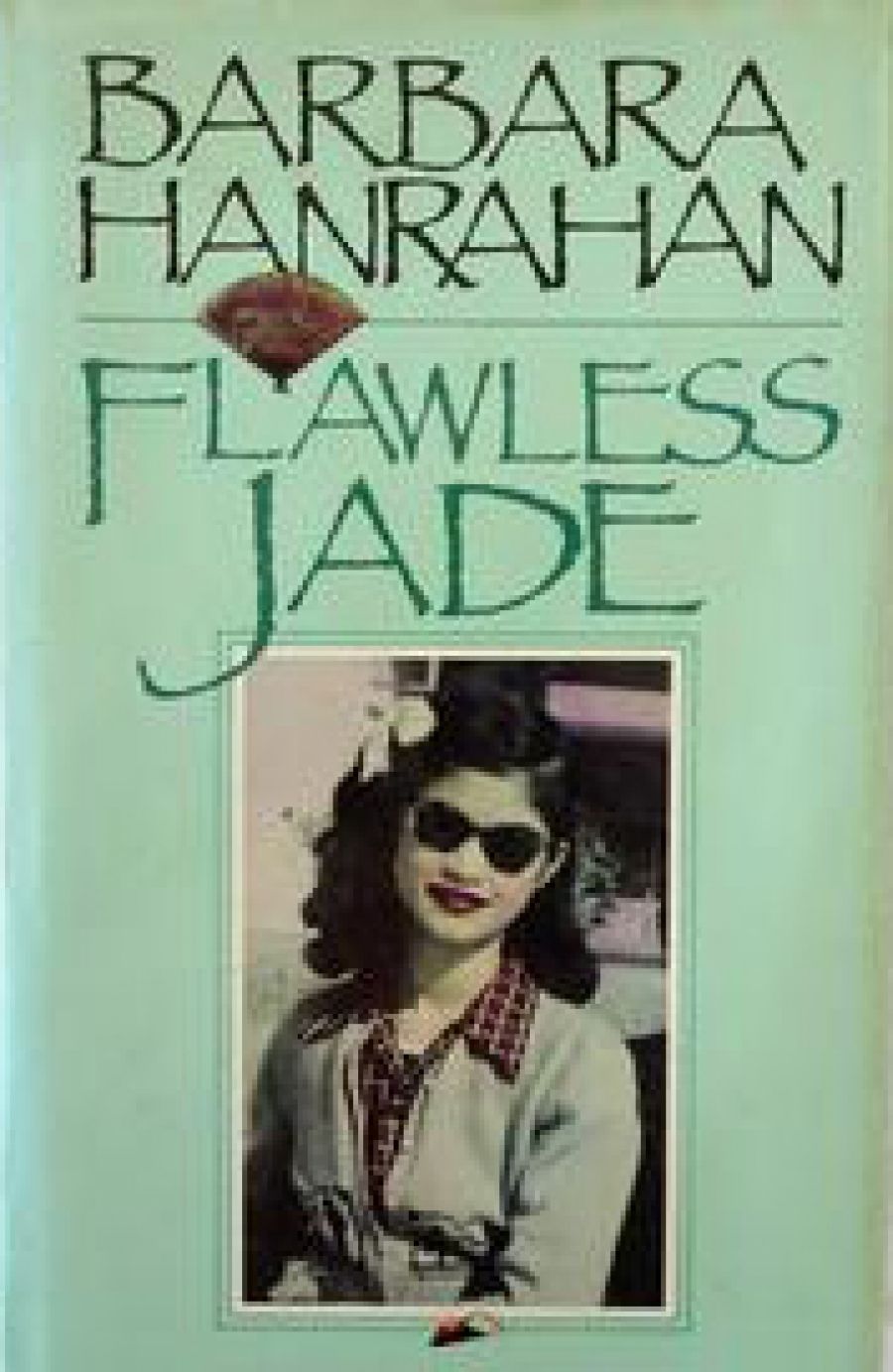
- Free Article: No
- Contents Category: Fiction
- Review Article: Yes
- Custom Highlight Text:
Barbara Hanrahan has set much of her work on studies of childhood, sometimes childhood which is involved with fantasy and evil. Always, however, the children are presented through their memories of the minutiae of daily life, vignettes formed by detail, which is vividly presented, conveying the remembered sights, sounds, and smells of childhood and adolescence. Amongst the pictures of plants and pets, houses and relatives, one finds often rather scrofulous details; the hairs in grandpa’s nose, the squeezing of grandma’s blackheads, the smell in the pit dunny, the scurf on aunt’s scalp, the wetting of a bed, the snot discards on the carpet, the persistence of the dog’s penis, glimpses of adult (usually unattractive) bodies, spiedon sexual activity, and the groping of old men under girls’ skirts.
- Book 1 Title: Flawless Jade
- Book 1 Biblio: University of Queensland Press, $29.95 hb, 142pp, 0702222461
The Chinese in many cases have the habit, not only of adopting a number of Western customs and superstitions, but of adding them to their own rather than substituting them. As Chinese domestic life is already rife with customs which derive from some absurd old wives’ tales, these additions mean that a Chinese child may be surrounded by superstitious practice, and Barbara Hanrahan portrays this effectively.
While the story is unfolded chronologically, it is done in a series of 114 episodic pieces, some of them less than a page in length: ‘Chickens’, ‘Fighting Crickets’, ‘Red Quilts’, ‘Big Grandmother’, ‘How you’re supposed to be beautiful’, ‘Ghosts’, ‘New Year’, ‘Not going to School’. Inevitably, given Barbara Hanrahan’s usual style, there are ‘Smells’, ‘Romantic Shitting’, ‘Smelly Underarms’ and ‘That Thing’ (in this case menstruation). But these latter do appear quite naturally here in a context of modern European writing. In my experience young Chinese women of the type of the narrator in this novel are not so frank, but then the author may well have established a rapport with some of them during her study for this book which I have not succeeded in achieving.
Wing-yee misses out on an adequate education because of the poverty of the family and its need to send money back to relatives in Canton. She works at various tasks to help and eventually gets employed as an usherette at a local cinema. She is courted by a youth from a well-off family, who breaks it off on his mother’s instructions. Wing-yee sends in a tinted picture of herself in answer to an advertisement for movie actresses, and is called for an interview. She hopes desperately for success. The way that other people intervene in her life at this point is the apogee of the story, although nothing much changes. Eventually better times arrive for the family, at least marginally, and Wing-yee reflects that despite all, she has sweet memories.


Comments powered by CComment